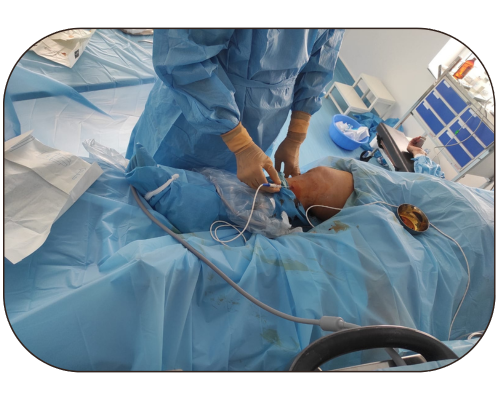
Welcome to Dr. Murali’s Pain Centre, where we specialize in delivering relief and improving the quality of life for individuals suffering from chronic pain. With a commitment to compassionate care and cutting-edge treatments, our dedicated team led by Dr. Murali is here to empower you on your journey towards a pain-free and fulfilling life.

What Is Radiofrequency Ablation?
RFA stands for Radiofrequency Ablation. It is a medical procedure used to treat various conditions, primarily in the fields of pain management. Radiofrequency Ablation involves the use of high-frequency electrical currents to create heat, which is applied to specific tissues or areas of the body to achieve therapeutic outcomes. In the context of pain management, RFA is often used to alleviate chronic pain conditions, particularly those arising from the spine or joints. A specialized needle with an electrode at its tip is guided to the target nerve or tissue using imaging techniques such as fluoroscopy. Once the electrode is in position, radiofrequency energy is delivered through the electrode to heat and ablate (destroy) the targeted nerve or tissue. This can interrupt pain signals and provide relief for conditions like facet joint pain, sacroiliac joint pain, and certain neuropathic pain conditions.
Indications
- Facet Joint Pain
- Sacroiliac Joint Dysfunction
- Peripheral Nerve Pain
- Chronic Back Pain
- Neck Pain
- Post-Surgical Pain
- Rheumatoid Arthritis Pain
Contraindications
Injections are generally avoided in patients who have a systemic illness or skin infection over the puncture site, bleeding problems or coagulopathy, or an allergy to local anaesthetics or any of the drugs that will be administered.
Complications
Radiofrequency ablation (RFA) is a minimally invasive procedure used for pain management, particularly for conditions like chronic back pain arising from the spine. While RFA is generally considered safe and effective, it does carry some potential complications. Common complications include temporary discomfort or pain at the site of the procedure, bruising, and swelling.
Post Procedure
After undergoing Radiofrequency Ablation (RFA), patients enter a post-procedure phase marked by careful monitoring and personalized care. Typically, individuals experience some mild discomfort or soreness at the treatment site, which can be managed with over-the-counter pain medications or those prescribed by their healthcare provider. Ice packs and rest are commonly recommended to alleviate any temporary post-procedural discomfort.
